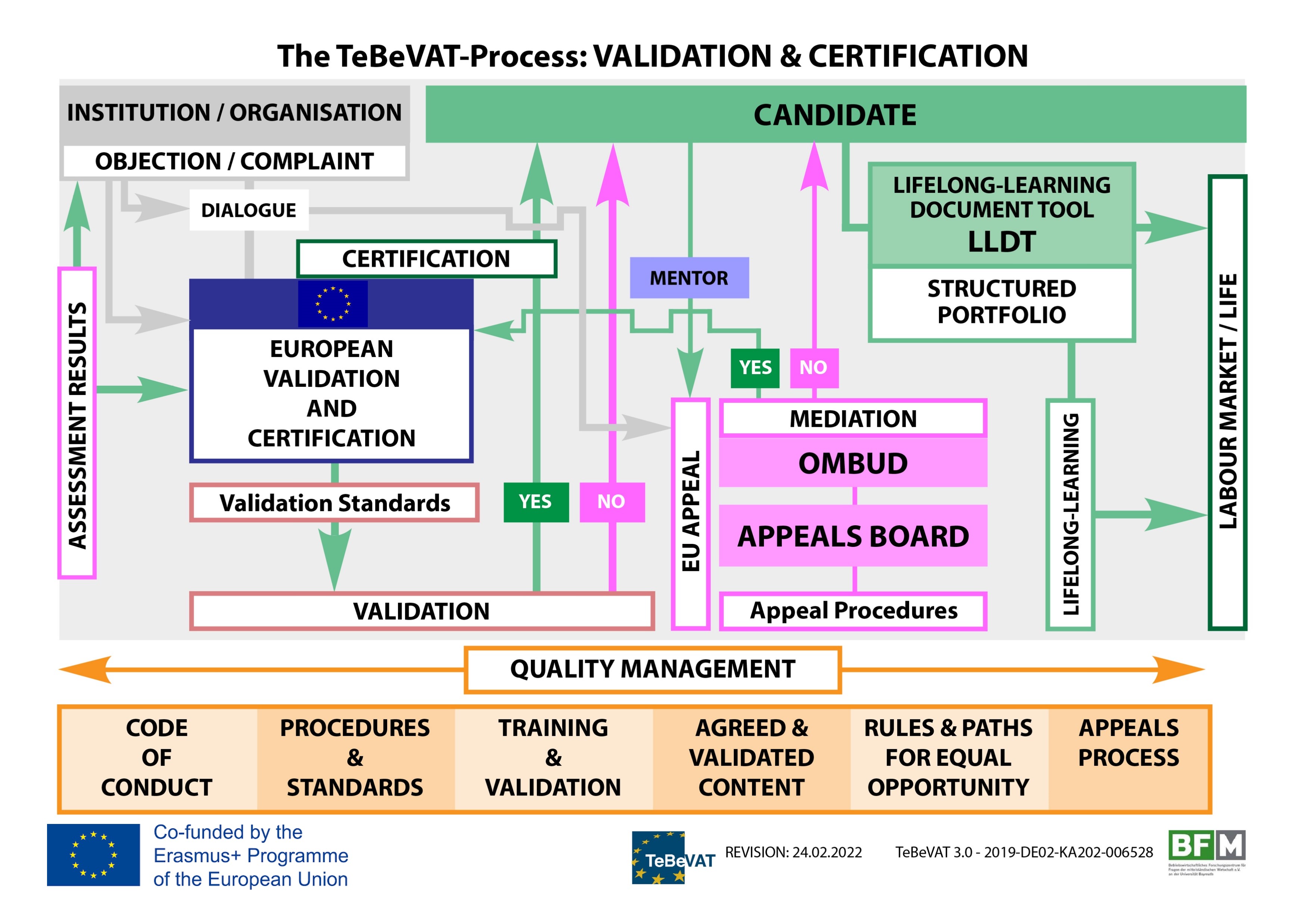6 Validation and Certification
Validation and Certification
Upon finalizing the assessment, a certificate (a digital credential) will be issued certifying the participation in the validation process. The certificate needs to be accepted among all stakehodlers, including employers and national certifying. The issuing authority needs therefore to make sure that all stakeholders recognize the quality of the certificates.
Certification in the EU
Among the multi level governance structure in the European Union, the principle of subsidiarity is strongly inscribed in the national education frameworks. Therefore, the issuance of certificates in the realm of Vocational Education and Training needs to be dealt with in a sensitive manner. TeBeVAt has developed a proposal to accomodate for different needs among the institutions in the partner countries. For the recognition of the certificate to work, the acceptance of common validation standards (in regards to national validation of vocational qualifcations) needs to be clarified.
The solution proposed by TeBeVAT foresses a central issuing authority on a European level. A single authrotiy to issue a credential provides the advantage of standardized assessment procedures and stable quality in the assessment process. The difficulty of finding suitable locations to conduct on-site and real world environment assessment can be dealt with as well.
